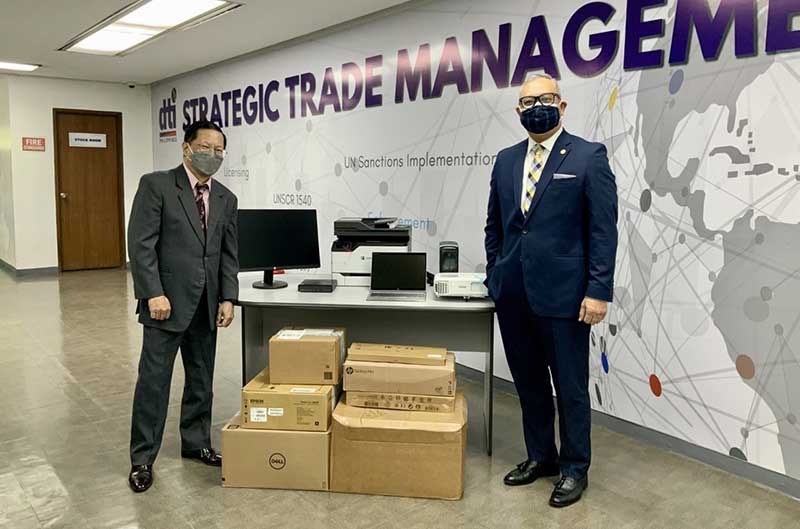
The United States, through the U.S. Export Control and Border Security (EXBS) Program, turned over on March 9, 2022 more than Php5 million ($97,000) worth of equipment to aid the Department of Trade and Industry’s (DTI) efforts to prevent the proliferation of weapons of mass destruction (WMDs).
This donation will help DTI’s Strategic Trade Management Office (STMO) speed up its processes and fulfill its role as the lead Philippine government agency for registering and licensing companies and establishing management systems for the trade in goods, under the Philippine Strategic Trade Management Act (STMA). Among the office equipment donated are 40 tablets, 30 computers, and 30 anti-virus software packages.
“The equipment donated to the STMO office will build its capacity and will make it easier for its staff to effectively manage strategic trade controls,” said EXBS Program Advisor Ransom Avilla.
STMO Director Atty. Luis Catibayan noted that this donation “demonstrates the trust and cooperation between the United States and the Philippines in working toward the common goal of preventing the proliferation of WMDs.”
To control the export, import, and transshipment of dual-use goods—or items that have a civilian and military use—the EXBS Program and STMO work closely to develop secure trade mechanisms, build an effective export control system, and meet the Philippines non-proliferation obligations under the United Nations Security Council Resolution (UNSCR) 1540. STMA is the Philippines’ response to meeting its obligations under UNSCR 1540.
EXBS is a State Department program within the Bureau of International Security and Nonproliferation, Office of Export Control Cooperation. It seeks to prevent the proliferation of WMDs and destabilizing accumulations and irresponsible transfers of conventional weapons by building effective national strategic trade control systems in countries that possess, produce, or supply strategic items, as well as in countries through which such items are most likely to transit.


















